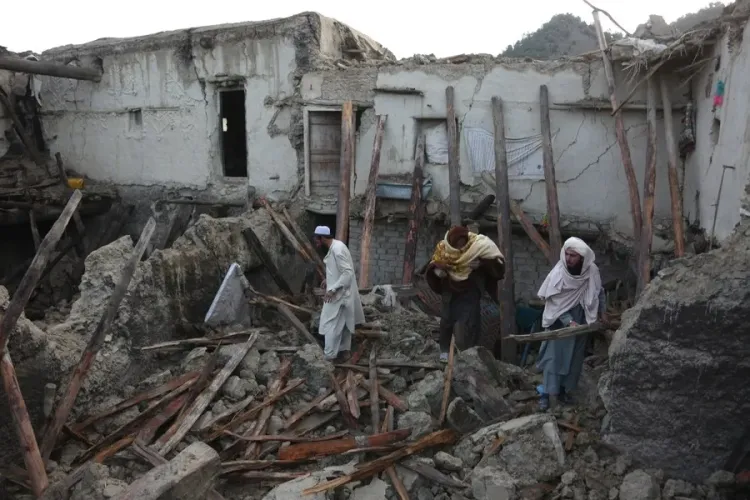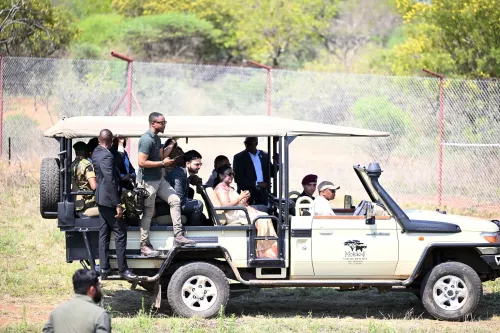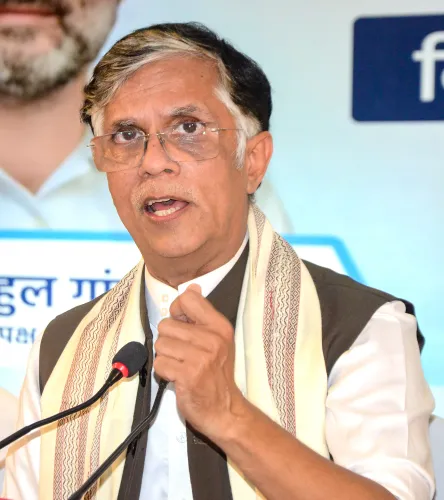What is the UN doing about the urgent needs of earthquake victims in northern Afghanistan?

Synopsis
Key Takeaways
- Urgent aid is needed for earthquake victims in Afghanistan.
- Thousands are homeless and facing freezing temperatures.
- The UN emphasizes the need for international support.
- Food shortages are affecting 90% of families in Afghanistan.
- Humanitarian organizations are actively providing assistance.
Kabul, Nov 13 (NationPress) The United Nations Office for the Coordination of Humanitarian Affairs (OCHA) has issued a clarion call for immediate assistance for those affected by the recent earthquake in northern Afghanistan, as numerous families continue to face homelessness and the impending threat of freezing temperatures, as reported by local media on Thursday.
A devastating earthquake measuring 6.3 in magnitude struck Balkh province, resulting in the tragic loss of at least 27 lives and leaving nearly 1000 individuals injured. The tremor has obliterated approximately 1,000 homes, rendering countless families homeless and at the mercy of harsh winter conditions, according to Afghanistan's premier news outlet, Khaama Press.
OCHA emphasized that the victims of this disaster are in dire need of support to rebuild their homes and obtain essential shelter to withstand the frigid temperatures that lie ahead.
Families affected in both Balkh and Samangan provinces are urgently requesting the reconstruction of their homes to safeguard their well-being and maintain basic living standards as winter approaches.
Humanitarian organizations have commenced distributing food, blankets, and shelter materials to those in need. Officials have cautioned that any delays in delivering aid could exacerbate the current crisis and heighten suffering.
Efforts to reach individuals in remote regions are underway, but the challenging terrain and winter weather conditions may impede relief operations.
Authorities have highlighted the critical necessity for international assistance to prevent further loss of life and to ensure the safety of vulnerable families during the upcoming winter season.
In a related note, the United Nations has raised alarms about 90 percent of families in Afghanistan grappling with severe food shortages.
The United Nations Development Programme (UNDP) has indicated that nine out of ten families in Afghanistan have had to either cut back on food consumption or sell their possessions to survive. This dire situation has been aggravated by the influx of Afghan refugees returning from Iran and Pakistan, as reported by Khaama Press.
UNDP Regional Director for Asia and the Pacific, Kanni Wignaraja, has warned that restrictions on women's participation in humanitarian and reconstruction initiatives have hindered access to crucial services.
The report released on November 13 is based on a comprehensive survey of nearly 49,000 Afghan families, which includes more than 1,500 refugee families. The return of approximately 2.3 million individuals is further compounding the challenges faced in recovery efforts across Afghanistan.









